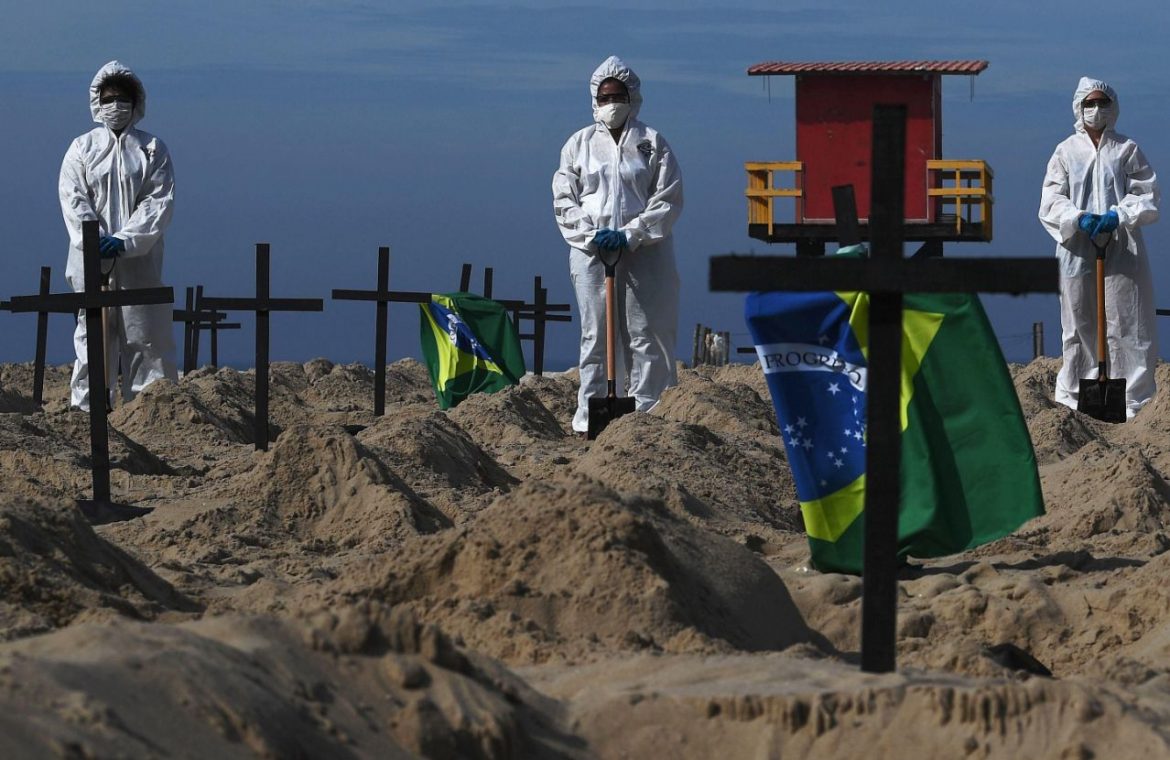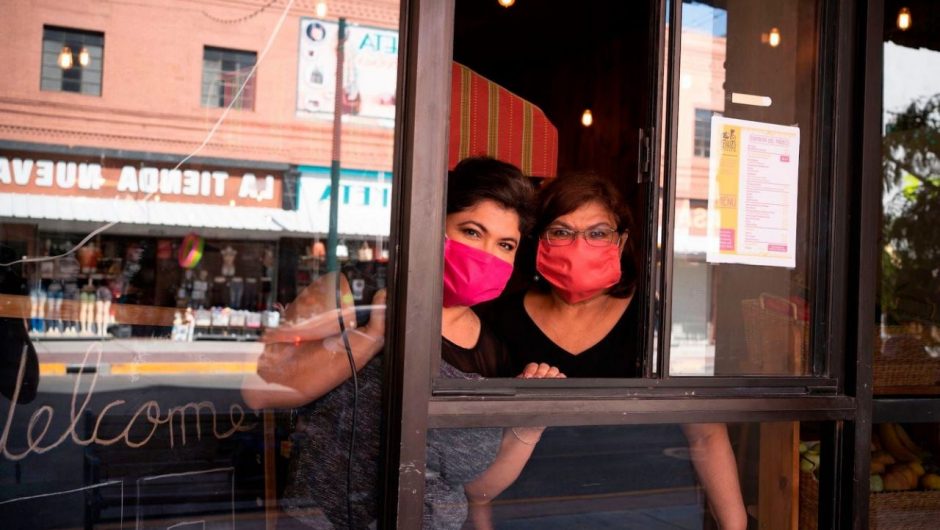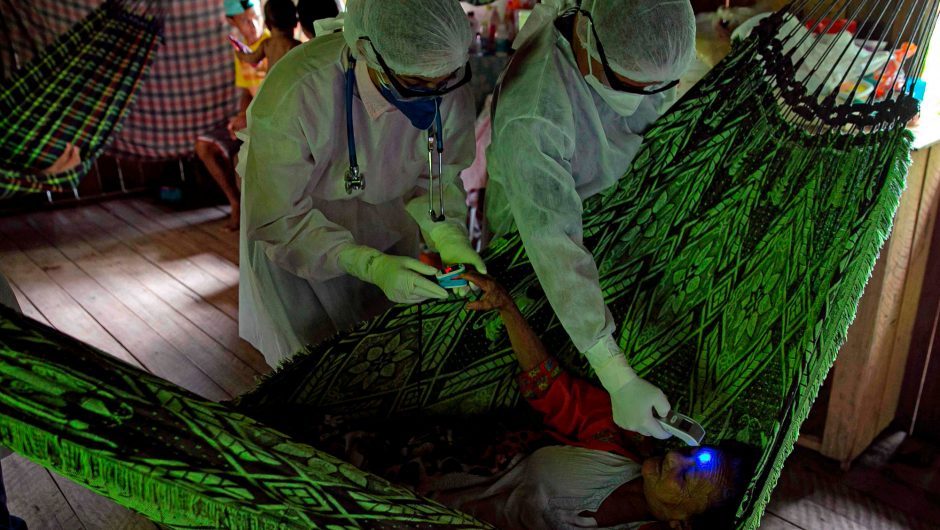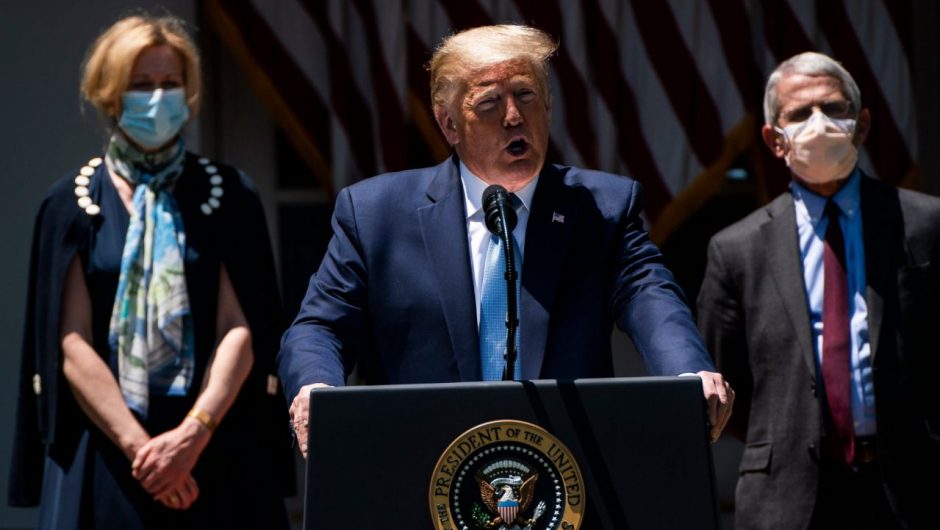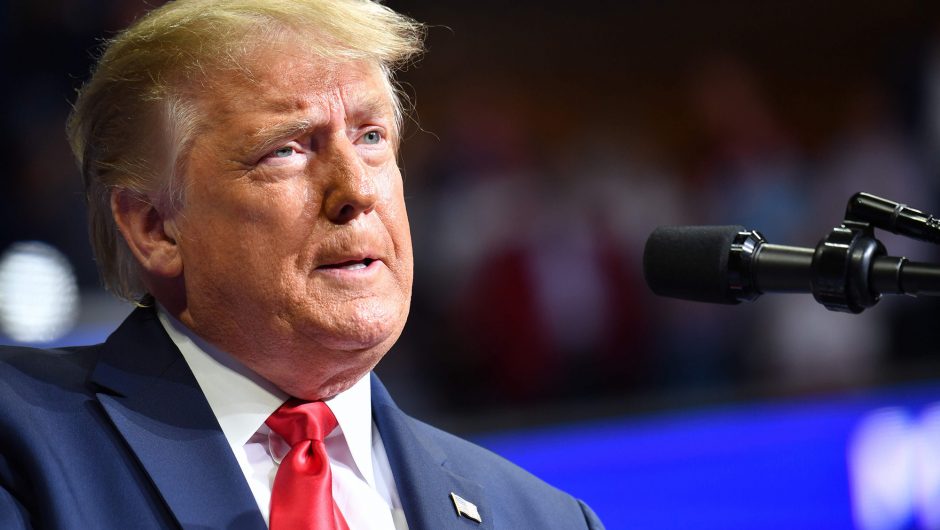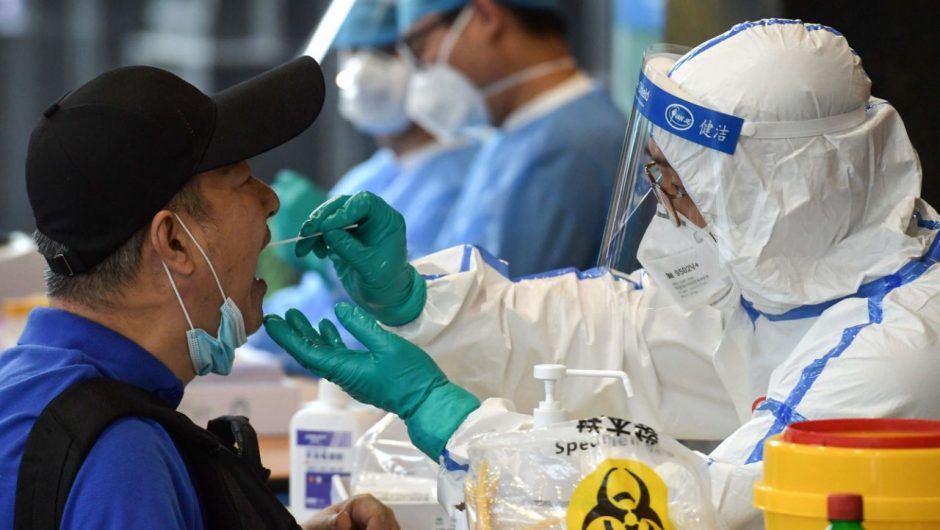On Friday night, Brazil became the second country in the world to surpass 1 million cases of the coronavirus, according to data from Johns Hopkins University. The nation is on track to overshadow the U.S. for the most coronavirus deaths in the world by the end of July, according to one model.
The U.S., which currently has the world’s highest number of cases and deaths, currently has more than 2.2 million cases and more than 119,000 deaths, according to Johns Hopkins. Brazil is fast-approaching 1.1 million cases and has just under 49,000 deaths.
Brazil reported a record-breaking 54,771 new cases on Friday, according to Reuters, and the country is expected to top 50,000 deaths over the weekend. The country’s health ministry said that the spike occurred because numbers were underreported on Thursday, according to The Associated Press.
Coronavirus – Brazil
An excavator digs more graves at the Vila Formosa cemetery. Lincon Zarbietti/picture alliance via Getty Images
The Institute for Health Metrics and Evaluation (IHME), which is part of the University of Washington’s School of Medicine, has projected that Brazil’s death toll will exceed that of the U.S. in July.
Alexandre Naime Barbosa, a medical professor at the São Paulo State University, told Reuters that the toll of the virus is likely much higher than what is currently being reported. “That number of 1 million is much less than the real number of people who have been infected, because there is under-reporting of a magnitude of 5 to 10 times,” Barbosa said. “The true number is probably at least 3 million and could even be as high as 10 million people.”
The country’s president, Jair Bolsonaro, has downplayed the risk of the virus, and the ministry has said the recovery rates are far more significant than the number of illnesses and deaths.
While it appears that northern parts of the country are seeing a decrease in overall cases, AP reported that Southern areas are facing an increase.
Story continues
“There is a lot of regional inequality in our public health system and a shortage of professionals in the interior,” Miguel Lago, executive director of Brazil’s Institute for Health Policy Studies, told the AP. “That creates many health care deserts, with people going long distances to get attention. When they leave the hospital, the virus can go with them.”
Yusuf revisits the songs of Cat Stevens
Back on campaign trail, Trump dismisses COVID testing
“He was in a panic – I was in a panic,” man confesses to the murder of his best friend


